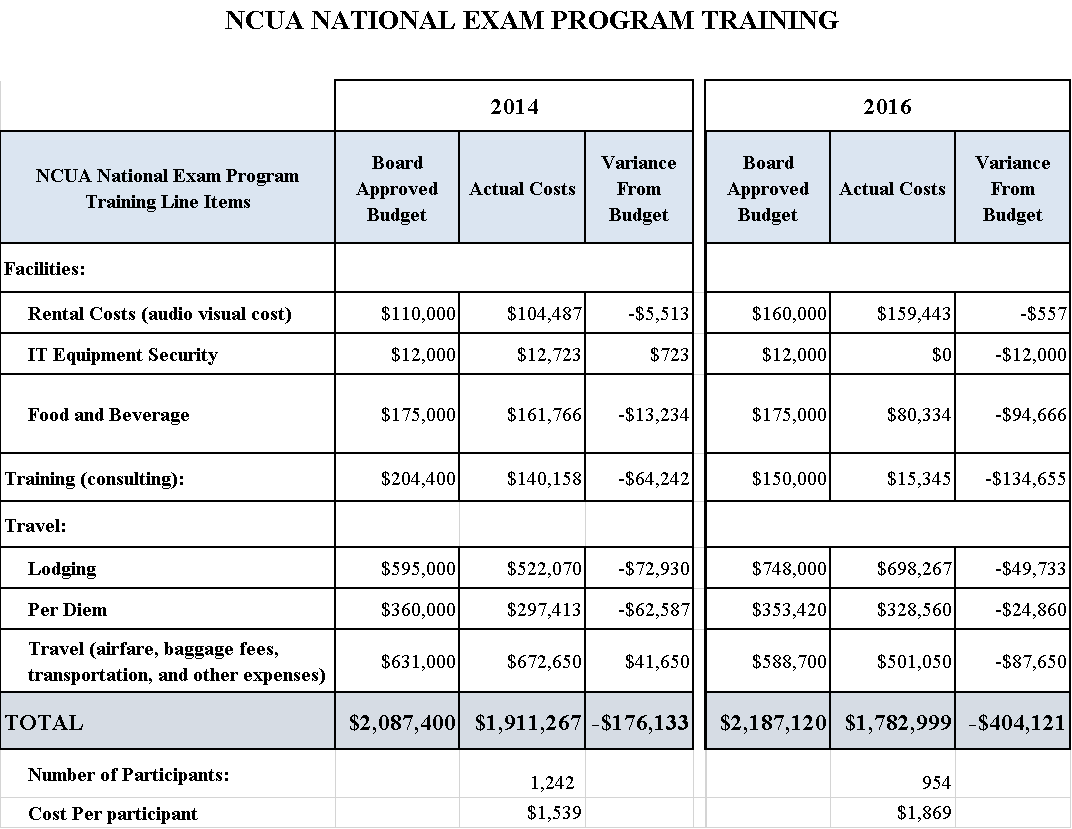Board Action Bulletin
NCUA to Request Comments on Modernizing Call Reports, Credit Union Profile
ALEXANDRIA, Va. (May 19, 2016) – The National Credit Union Administration Board held its fifth open meeting of 2016 at the agency’s headquarters here today and discussed two issues:
- The Chief Financial Officer briefed the Board on the performance of the Temporary Corporate Credit Union Stabilization Fund, including plans to pay down $700 million of borrowings from the U.S. Treasury by May 31, 2016.
- The Office of Examination and Insurance informed the Board about proposed plans to modernize the Call Report and Credit Union Profile content and improve data collection.
Stabilization Fund Payment to Reduce Treasury Borrowing to $1 Billion
By the end of May, NCUA plans to make a $700 million payment to the U.S. Treasury against prior borrowings by the Stabilization Fund.
When that payment is made, the Stabilization Fund’s outstanding borrowings from the U.S. Treasury will decrease to $1 billion. The payment largely comes from the net proceeds from approximately $700 million in recent NCUA legal recoveries from Goldman Sachs, UBS and Credit Suisse, some of which came in after the close of the first quarter.
“NCUA’s corporate resolution plan remains on the right track, thanks to an improving economy, strong legacy asset performance and the continued hard work of the NCUA staff in successfully pursuing legal recoveries and ably managing the Stabilization Fund,” NCUA Board Chairman Rick Metsger said. “NCUA is committed to staying on this prudent course to achieve the Stabilization Fund’s ultimate lowest-cost resolution.”
For the quarter ending March 31, 2016, the Stabilization Fund’s net position increased by $78.2 million to a positive $618.6 million, up from $540.4 million at the end of the previous quarter, based on the best available preliminary and unaudited information.
While the Stabilization Fund continued to have a positive net position in the first quarter, no funds are available to provide federally insured credit unions with an immediate rebate. NCUA must first repay all outstanding borrowings from the U.S. Treasury and satisfy any outstanding NCUA Guaranteed Notes obligations. Future changes in the economy or the performance of the legacy assets, which secure the NCUA Guaranteed Notes, could change the value of the assets NCUA and the Stabilization Fund can eventually access at the end of the NCUA Guaranteed Notes Program.
The change in net position primarily resulted from guarantee fees earned and improvements in projected cash flows relating to the legacy assets that secure the NCUA Guaranteed Notes.
Created by Congress in 2009, the Stabilization Fund assumed the losses associated with the failure of five large corporate credit unions and allowed the credit union system to absorb these losses over time. By law, the Stabilization Fund is scheduled to expire in 2021.
Agency to Seek Stakeholder Views on Updating Call Report and Profile
NCUA plans to consult with credit union system stakeholders as the agency conducts a comprehensive review and modernization of the Call Report and Credit Union Profile content to leverage technology, improve data collection and enhance the examination process.
“NCUA is committed to continual quality improvement,” Metsger said. “We are therefore carefully examining our processes and operations, asking how NCUA can make these better and more efficient for stakeholders and useful for NCUA. Through this request for information, NCUA will seek to identify ways to reduce or eliminate any potentially unnecessary Call Report burdens and improve NCUA supervision. We will also use this information to find ways to streamline the quarterly reporting process, especially for smaller, non-complex credit unions.”
NCUA uses the data collected in the Call Report to monitor and supervise risk in credit unions and protect the National Credit Union Share Insurance Fund.
Stakeholders will be invited to submit written comments electronically or by mail, and instructions for submission will be included in the upcoming
Federal Register posting. The agency will be gathering information through an open and public process of comment and review that may include using online surveys, focus groups, workshops and other forums. NCUA will also form an internal working that will consult with external stakeholders.
“Once NCUA publishes this request for information, I urge all interested individuals in the credit union system to assist us by providing their insights and suggestions during this comment process,” Metsger said.
NCUA will use stakeholder comments to help improve the user experience, enhance the utility of supervisory data and help minimize the burdens associated with reporting without compromising the agency’s ability to monitor and supervise risk in federal credit unions.
Comments must be received within 60 days of the publication of the request for information in the
Federal Register. NCUA also plans to seek clearance from the Office of Management and Budget to form workgroups that would provide feedback on improvements to the Automated Integrated Regulatory Examination System, or AIRES, and Credit Union Online systems for submitting and storing information.
NCUA tweets all open Board meetings live. Follow
@TheNCUA (opens new window) on Twitter, and access Board Action Memorandums and NCUA rule changes at
www.ncua.gov. NCUA also live streams, archives and posts
videos of open Board meetings online.

